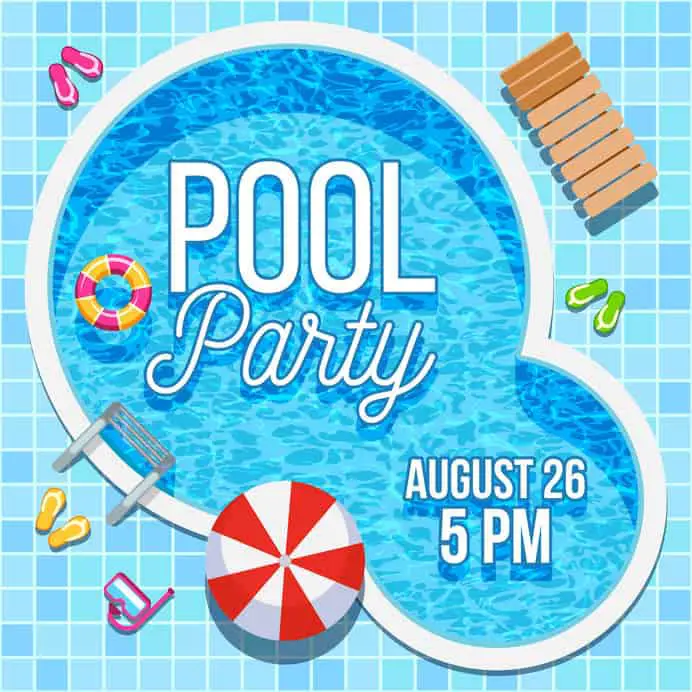You’re having a pool party and your salt water pool is going to get a big workout. Increased pool usage means increased chlorine requirements and if you fall behind, your pool water chemistry will suffer and cloudy water or worse might result.
Your salt water chlorinator system most likely has a super chlorinate feature which enables you to bump up chlorine production quickly to account for expected increased pool usage and thus chlorine requirements. The super chlorinate feature is also useful for very hot sunny weather and dealing with heavy rain which increases your pool water level and dilutes chemicals. You can also quickly super chlorinate using a chemical product like liquid or crystal chlorine or a concentrated shock product.
As long as your chlorine level remains in the 1 – 3 ppm (parts per million) range your pool will remain sanitary but heavy pool usage can use up free chlorine quickly.

Salt Water Pool Chlorine Requirements
A salt water pool needs a chlorine level of 1 – 3 ppm and a salt level of 2,700 – 3,400 ppm to maintain proper water chemistry. When chlorine falls below this range, water becomes cloudy, algae can grow and the water loses its sanitization and is no longer clean for swimming.
When salt levels fall below the required range, it becomes more difficult for the salt water chlorinator to produce chlorine from salt and at some point if salt levels get too low, the chlorinator will automatically shut off to protect itself until salt levels are raised to within range.
Shocking Your Salt Water Pool
What is shocking a pool and can a salt water pool be shocked? Shocking a pool involves adding a high level of chlorine to quickly raise the level of free chlorine in the pool. Free chlorine is the chlorine that is freely available to disinfect the water. Yes, a salt water pool can be shocked and should be at various time during the pool season, namely:
Spring opening – Over the winter it’s likely that most of all chlorine has died so adding a large amount of chemical chlorine to a salt water pool is a quick way to get the chlorine up so that the salt water chlorinator can then pick up the pace and keep the level reasonable. Salt water chlorinators are good at keeping chlorine levels within the required range but it’s a lot of stress to expect it to create chlorine starting at 0.
Fall closing – Right before closing a pool for the winter, it’s good to shock the pool by again adding a large amount of chemical chlorine to the pool to keep the water clean after the system has been shut down in the event that temperatures in the fall don’t drop as quickly as you expect. Once the weather drops below 50 degrees, a salt chlorinator usually shuts down automatically as algae can’t grow below this temperature.
Prior to heavy pool usage – Many people swimming in a salt water pool brings contaminants into the water which increases the need for chlorine. By shocking the water the day before your pool party, it gives a chance for chlorine to build up to a slightly higher level than normal, a level that will likely be reduced the next day once the heavy pool use begins. You’re basically getting ahead of the expected heavy pool usage in advance.
After heavy rain – Torrential downpours that add significant water to the pool throw pool chemistry out of whack and can quickly reduce chlorine levels below range. Shocking the pool will quickly get the chlorine level back up while the chlorinator keeps producing its own chlorine with the pump running.

